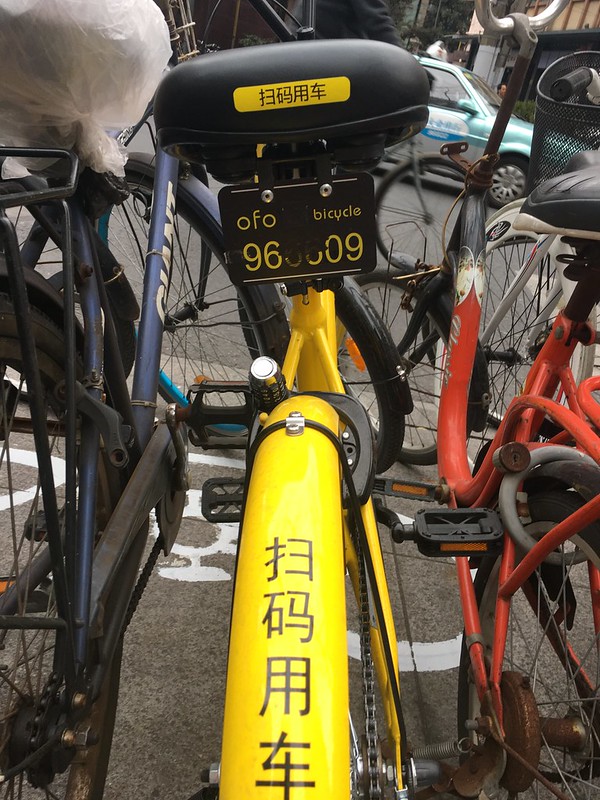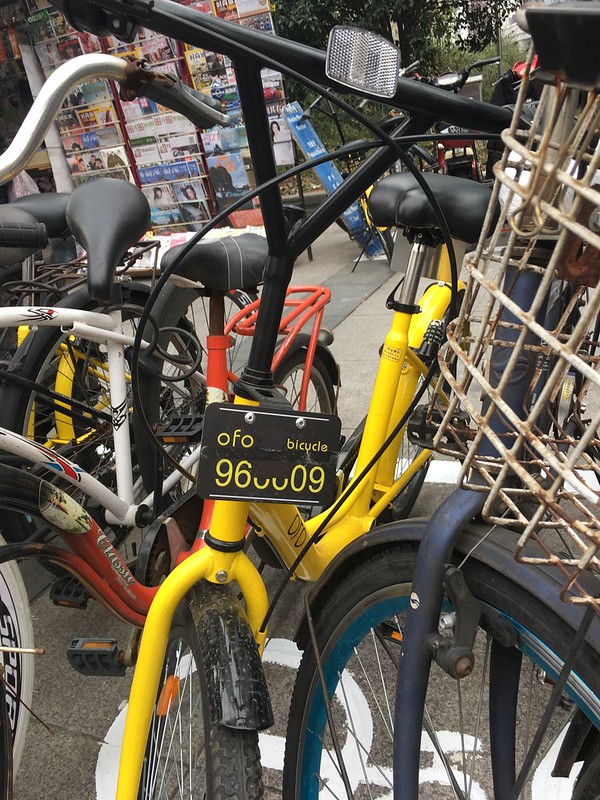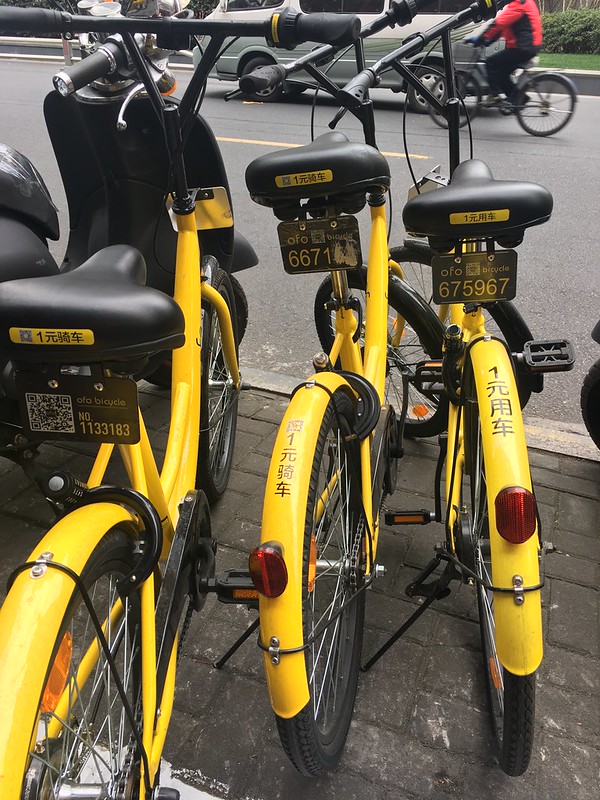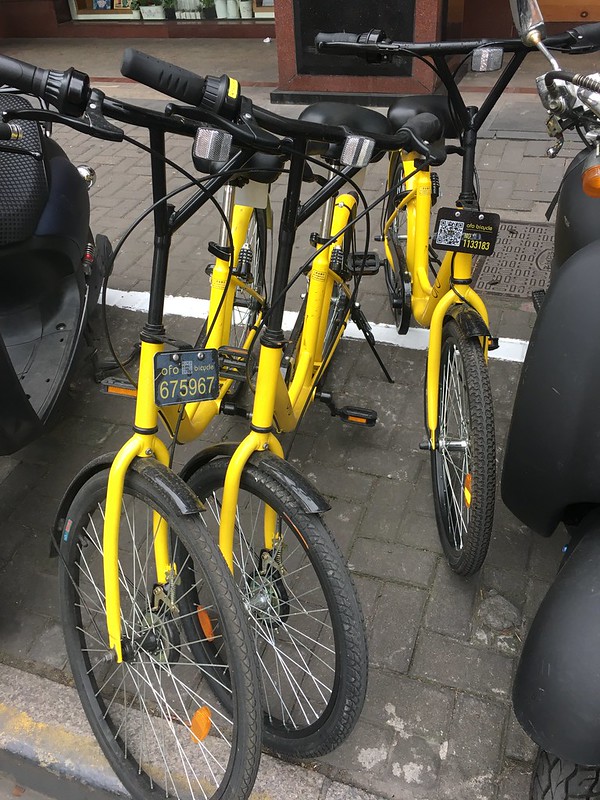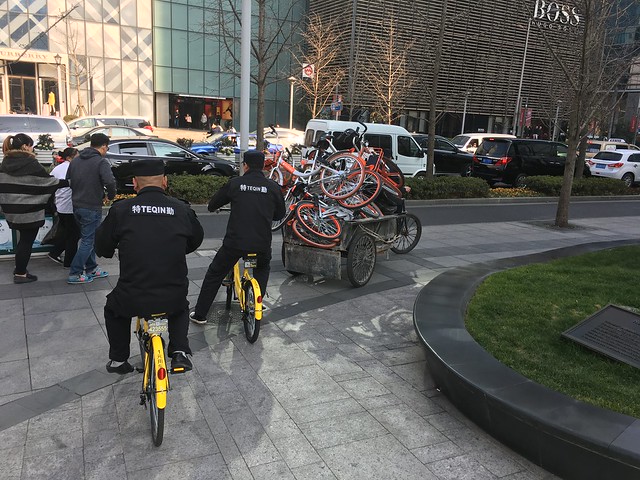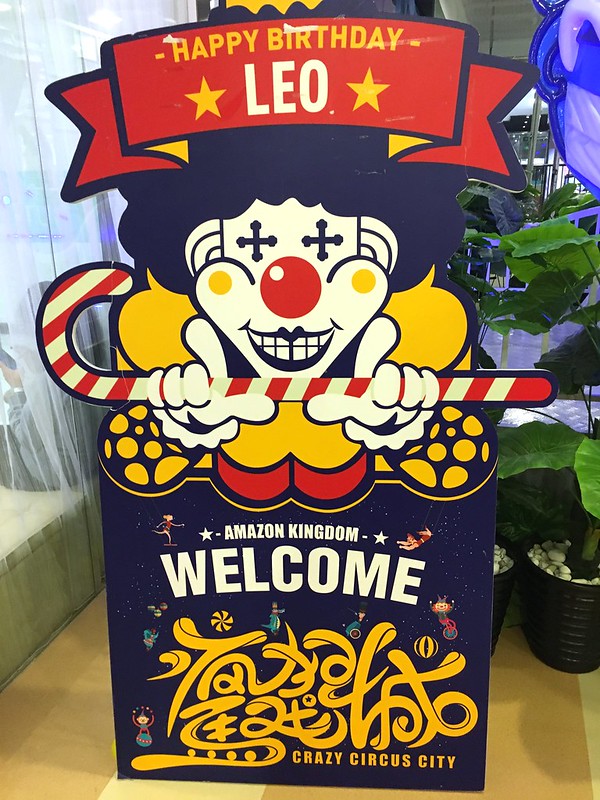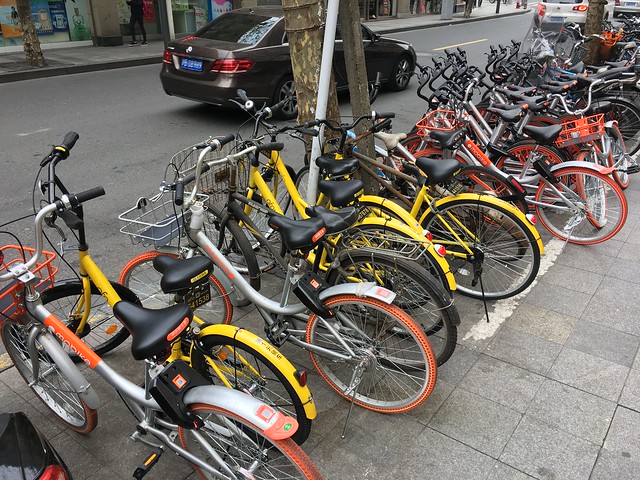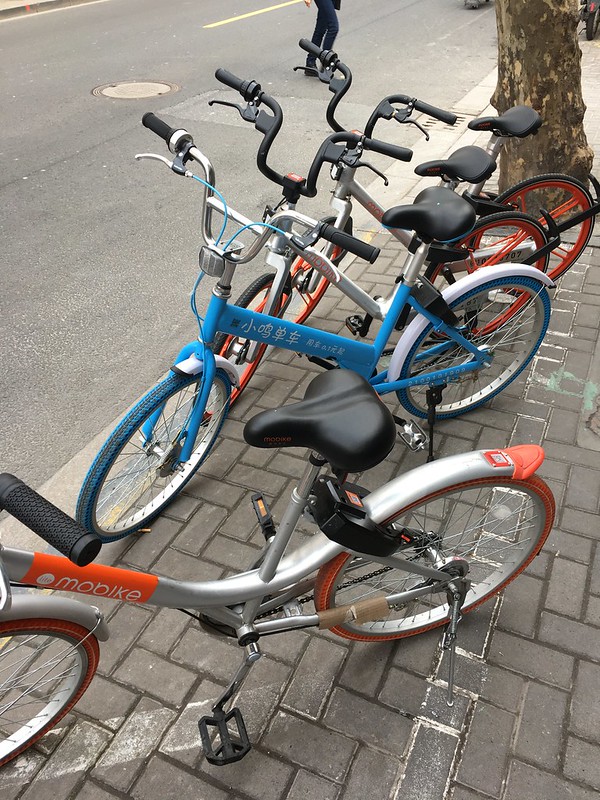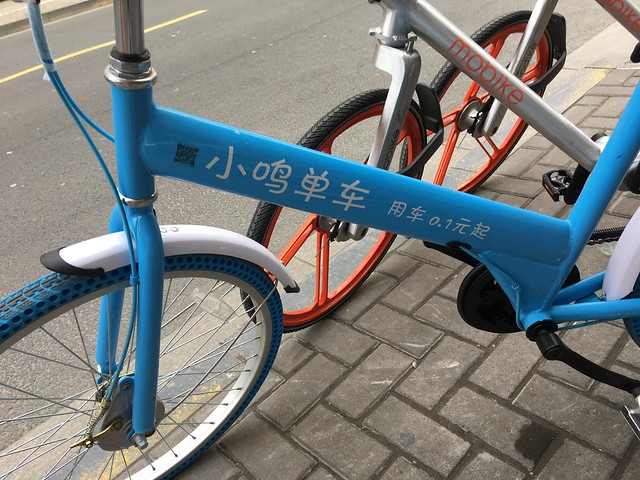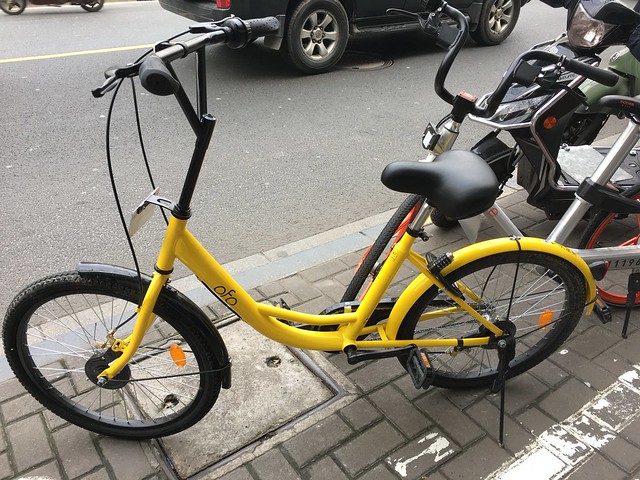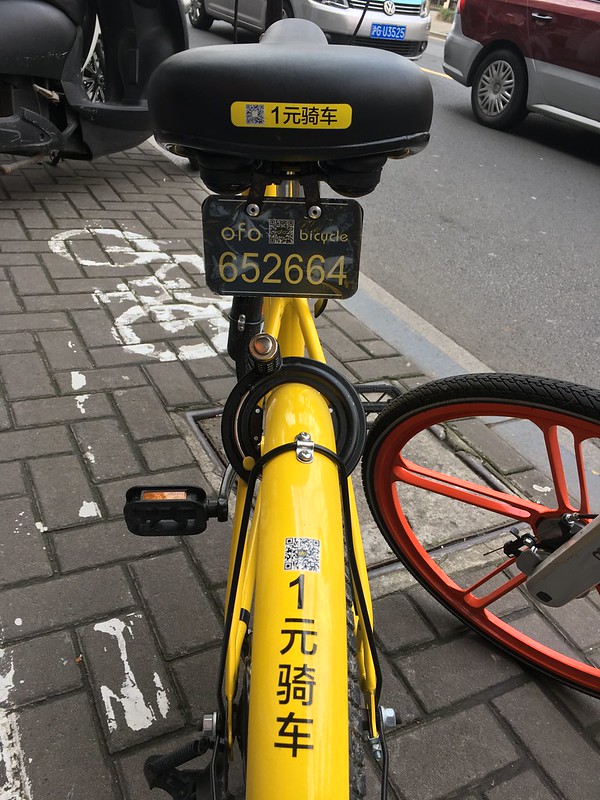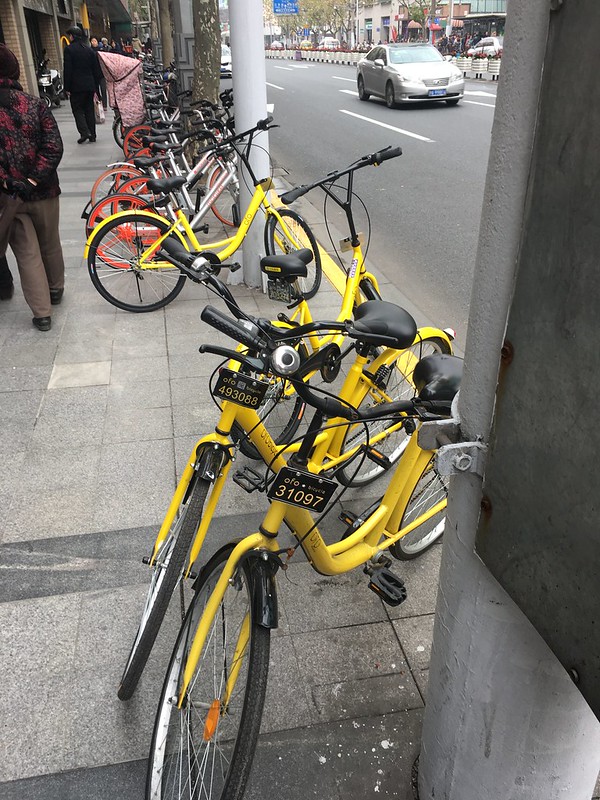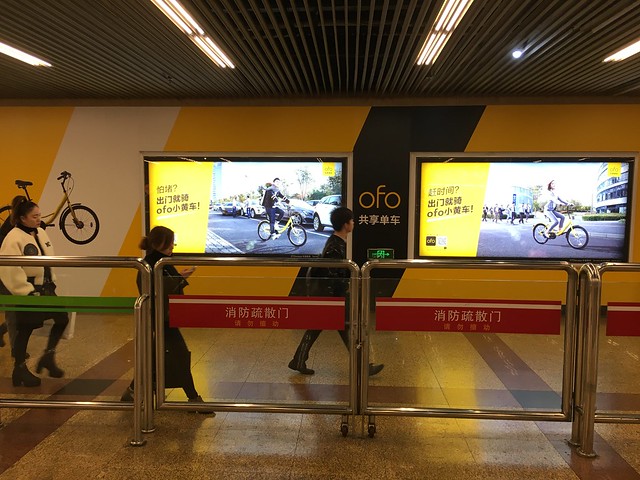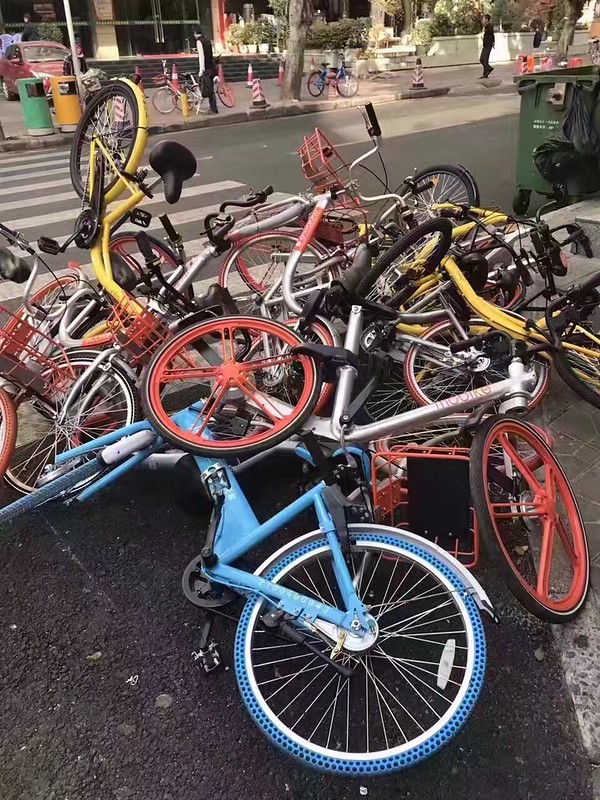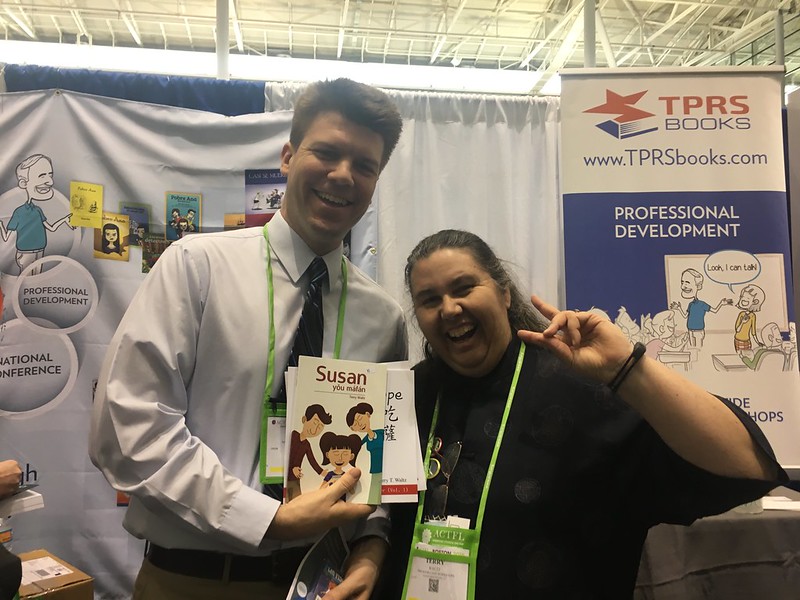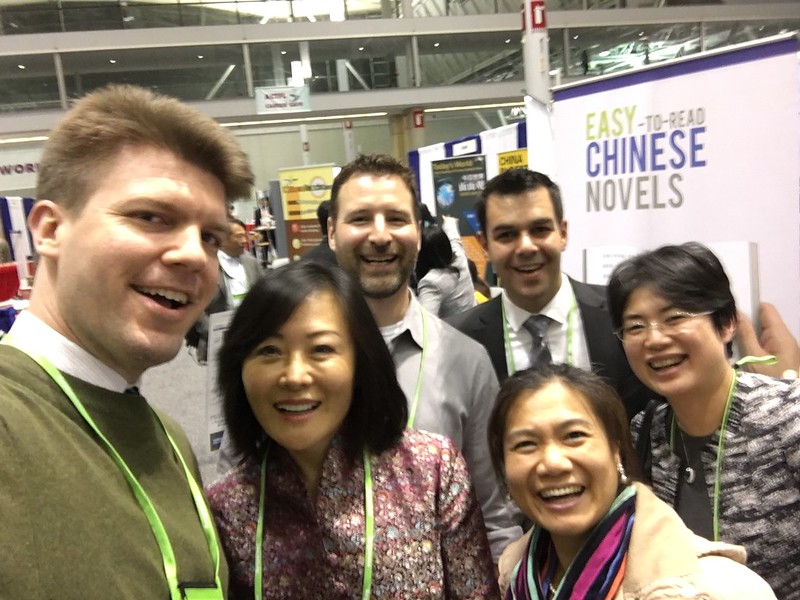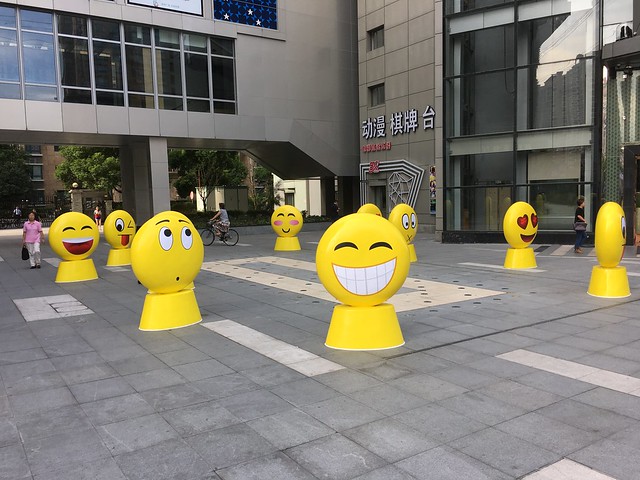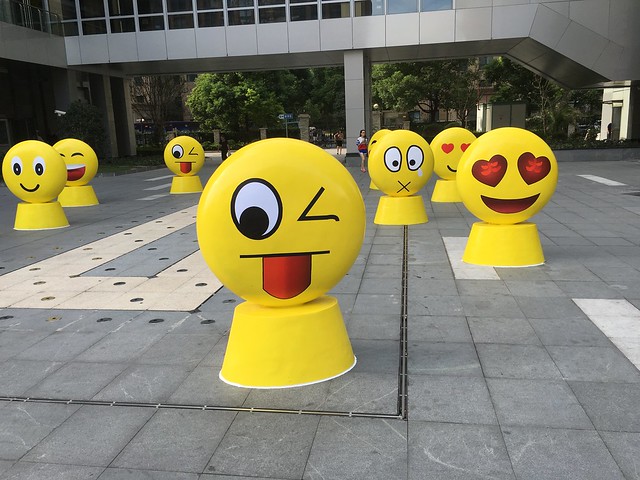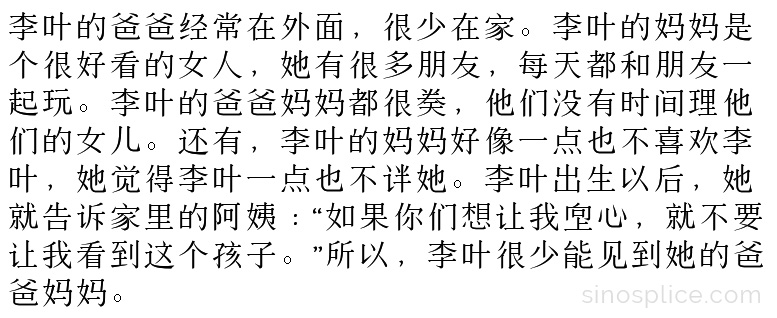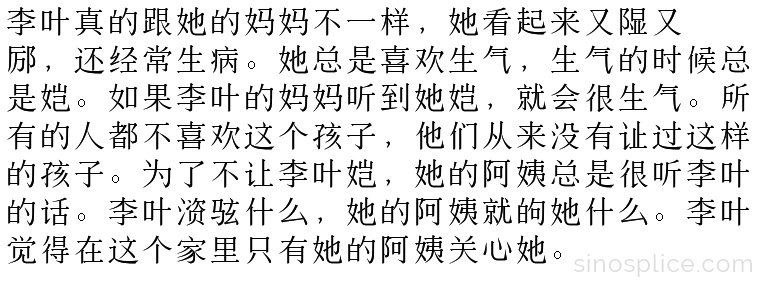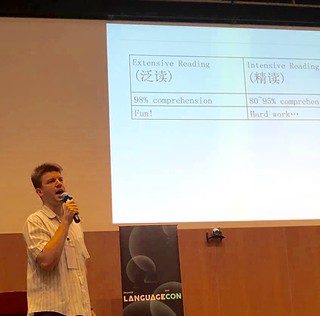02
Mar 2017The English that Feels Weird in Your Chinese
Anyone that has studied Chinese for a while and made it to at least the intermediate level will notice that certain English words are used. Sometimes it’s words that seem cool or trendy to use in English, like “Starbucks” or “Doctor Strange.” Other times it’s English acronyms that are just easy to keep in English rather than translating into Chinese, such as “FBI” or “NBA” or “MBA.” And still other times, it’s “false acronyms” with Chinese characteristics such as “PPT” (for Powerpoint presentations) or “APP” (for “app”).
I’m not talking about any of those. These are all fairly easy to pick up and incorporate into one’s daily conversations. I’m talking about another kind, while not difficult at all to understand, made me cringe a little at first. And now, even though I’m quite used to them, I can’t really stomach using them in my own speech. But these are words that I hear even people that don’t speak much English using.
Some examples!
- make sense: most notably, the phrase “不make sense.” (I recall Jenny used to use this on ChinesePod occasionally, but she’s not the only Chinese person to use this English phrase in Chinese!)
- man: this means “manly,” as in “很man“
- fashion: this means “fashionable,” as in “很fashion“
- in: used as an adjective to describe fads or trends, as in “很in“
- out: used to describe what’s NOT cool, but this time as either an adjective or as a verb: “太out了” or “你out了“
- OK: although sometimes this word feels just like it does in English, there’s something about the phrase “也OK” instead of “也可以” that always feels odd to me
- high (often written as “嗨“): I’ve never heard this used in the “drug high” sense; it’s always in the “natural high” sense, as in “玩得很high” for “have/had a blast”
- get: this seems to be a synonym for 懂, as in “只有你能get我“
- down: a verb, short for “download”
Here are some examples collected from the web. Many of them seem to be from Taiwanese sources.
To be clear, this is not just regular “Chinglish,” where English gets randomly mixed in with Chinese. These are words that seem to have snuck into common usage among young people (maybe first in Taiwan?), even when those people don’t speak much English, and don’t necessarily even have an international education.
Do these usages feel weird coming out of your own mouth? Or can you use them naturally?
What other examples can you share?
28
Feb 2017Terrible Product Name “and” Characterplay
My love of characterplay aside, “and” has to be one of the worst English product names I’ve ever seen. It’s a faithful translation of its Chinese product name, 和 (meaning “and”), but that doesn’t make it any better.
Some shots from the Shanghai Metro:
22
Feb 2017Ofo Rental Bikes Are Getting OWNED
I’ve recently commented on how the sudden rise of app-driven bike rental services in Shanghai is fairly staggering. From a casual look around the downtown area, it’s clear that Mobike and Ofo are currently the top dogs, and Ofo seems to be doing all right with its “cheaper” business model, despite its late entrance to the market. But I’ve recently learned that Ofo’s service has some pretty glaring flaws when compared to Mobike.
How Mobike and Ofo Differ
Both services use apps, but Mobike’s bicycles are more high-tech, and that makes a big difference. Mobike bikes have tracking devices embedded, and the bike locks are unlocked remotely through the network. Ofo bikes use simple combination locks that you can request the code for through the app.
So the Mobike service works like this:
- Use the app to find bikes near you
- Unlock a particular bike by scanning its QR code with the app
- (The bike’s lock automatically unlocks after a few seconds)
- Use the bike
- Park the bike and manually lock it
- Mobike’s services are informed the ride is over, and the bike’s location is made available to other users through the app
…and the Ofo service works like this:
- Find a bike yourself (no tracking devices)
- Send the bike’s ID number to Ofo via the app
- Receive the combination to the mechanical lock
- Unlock the bike with the combination
- Use the bike
- Park the bike and manually lock it
(Note: I don’t use Ofo myself, but I’ve spoken with people who do. Ofo bikes also have QR codes on their bikes, but they’re for the purpose of advertising the app, not unlocking the bikes. The Mobike QR codes serve both purposes.)
It seems like the Ofo system is fairly straightforward and would save a lot of money, right? Oh, but it has problems…
Ofo’s Locking Problem
Because Ofo uses combination locks, none of the bike locks are truly locked unless the last user changed the combination after closing the lock. And, it turns out, a lot of people don’t. A good number of Ofo bikes on the street are actually unlocked, if you just press the button on the lock.
When I first heard this, I was skeptical, but the very first bike I tried was unlocked. Later, I checked a sample of 20 bikes in the Jing’an area, and 4 were unlocked. So, 1 in 5. That’s a lot!
As it turns out, this isn’t Ofo’s worst problem, though…
People Are Publicly Stealing Ofo’s Bikes
Ofo bikes are locked with combination locks, and those combinations don’t change. So if you save the combination and can find the same bike again, you can use it for free. The only thing keeping you from using the same bike again is the sheer number of bikes out there and the other people using them. And the way that other people use the bikes is to request the combination through the app. But what if they couldn’t get the combination for “your” bike? To get the combination, other users need to read the bike’s ID number. But if this number is missing or unreadable, no one else can get the combination.
So this is how people are “owning” Ofo bikes. They’re getting the combination to a particular bike, and then scratching off or otherwise removing the bike’s ID number. I did a bit of hunting for “owned” Ofo bikes parked on the street, and did find a few. Logically, though, the “owned” bikes are probably going to be parked in less public places. I really wonder how many Ofo bikes have disappeared off the street.
I also wonder if this aspect of the “cheap bike” strategy has already been taken into account. Ofo has ample funding, after all. How many bikes can Ofo afford to lose and yet still have lower costs than Mobike, with its fancy high-tech bikes? Or, how many Ofo bikes need to be stolen before people realize that it’s easier (and not at all expensive) to just leave the bikes in the system? How long does it take before “owning” a ripped-off Ofo bike is uncool and/or shameful? Hard to say… and there are a lot of people in Shanghai!
Strange Competitive Practices
The other day near Jing’an Temple I snapped this shot of a few guys slowly escorting a “cargo tricycle” full of Mobike bicycles. The strange thing was the two of them were riding Ofo bikes!
I was in a hurry, so I didn’t even try to ask them any questions, but the guys were wearing clothes which read 特勤, which is probably short for 特殊勤务, something like “special forces” (a division of the police).
At least one Chinese person I showed these pictures to thought the uniforms looked fake, but who knows?
Ofo in Chinese Is “O-F-O”
Just a final note on the Chinese names of these two companies:
- Mobike: 摩拜单车
- Ofo: O-F-O
Yes, Ofo in Chinese is spelled out, just like the word “app” is spelled out in Chinese as “A-P-P.”
16
Feb 2017Subvocalization While Reading Chinese
According to Wikipedia, subvocalization refers to “the internal speech typically made when reading.” It’s that “voice in your head” (you) pronouncing every word mentally. Subvocalization is normal, and is not generally considered a problem, unless you’re trying to learn to speed read. In that case. subvocalization is generally regarded as something that slows a reader down.
I found this section of Wikipedia quite interesting:
Advocates of speed reading generally claim that subvocalization places extra burden on the cognitive resources, thus, slowing the reading down. Speed reading courses often prescribe lengthy practices to eliminate subvocalizing when reading… [but] for competent readers, subvocalizing to some extent even at scanning rates is normal.
Typically, subvocalizing is an inherent part of reading and understanding a word. Micro-muscle tests suggest that full and permanent elimination of subvocalizing is impossible. This may originate in the way people learn to read by associating the sight of words with their spoken sounds…. At the slower reading rates (100-300 words per minute), subvocalizing may improve comprehension.
The Case of Chinese
OK, but now what about for Chinese? Chinese characters are not as directly tied to a phonetic system (like an alphabet), right? Plus Chinese kids learn characters by writing them over and over rather than by reading them aloud, right?
Well, not really. Here’s what research has to say (I added bold to certain parts):
…Reading English and reading Chinese have more in common than has been appreciated when it comes to phonological processes. The text experiments suggest that readers in both systems rely on phonological processes during the comprehension of written text. The lexical experiments show differences just where it is expected: Evidence for early (“prelexical”) phonology in English but not in Chinese, but evidence for still-early (“lexical”) phonology in Chinese. The time course of activation appears to be slightly different in the two cases. Thus, the similarity between Chinese and English readers is shown not in their dependence on a visual route, but in their use of phonology as quickly as allowed by the writing system.
So it’s not that Chinese readers don’t subvocalize; it just kicks in later, because it takes for time for readers to amass the knowledge of written Chinese needed. Interesting!
Obviously, you can dive a lot deeper into the research on subvocalization, reading comprehension, and cognitive differences between writing systems. (Please feel free to share links to relevant studies in the comments.) For my purposes, though, one important point is clear: there’s no need to exoticize reading Chinese any more than necessary. Yes, learning a bunch of characters is a hurdle, but you don’t really need to worry too much beyond that.
Subvocalizing in Chinese
First of all, we should remember that subvocalization is not “bad,” and it’s not something that native Chinese readers don’t do (some kind of “laowai problem”). But that doesn’t mean that there’s no danger of over-reliance on subvocalization when learning to read Chinese.
I personally have experienced what I consider a serious impediment to my reading fluency. I found that when I would read Chinese a text, I was reading it aloud very deliberately in my head (subvocalizing). The problem was that I had obsessed over correct tones for so long that I just couldn’t stop. This slowed me down even more than normal subvocalization would be expected to do. So even when I was just reading for purely informational purposes, my brain was insisting that I had to pronounce every tone of every word (in my head) exactly right. I knew this was slowing me down a lot, but I couldn’t stop! The “tone police” in my head were out of control.
I did eventually get over this bad habit, and the result was much more rapid reading speed, as well as the ability to truly scan a text for meaning quickly. How did I do it?
Two Cures for Subvocalization
My solution was “the firehose.” I forced myself to read a lot. I read long Chinese texts for which I knew the words, but wasn’t sure of the tones for all the words. In some cases, I may not have even been sure of all the exact readings of all the characters in those words. But I could still comprehend the general meaning of the texts, which was all I needed.
So the steps were:
- Find a relatively long text which had information I needed (make the reading meaningful)
- Don’t allow myself to look up words (no popup pinyin plugin allowed!)
- Force myself to read at a high speed, disallowing my brain from obsessing over uncertain readings
This worked, but I had to do it a lot, and to be honest, it was a little painful. Unlearning a habit is not easy, and if I’m not careful, I still find my brain dutifully reading aloud every single tone in my mind. But with just a little willpower, I can keep subvocalization in check when I need to, and greatly increase my reading speed.
The second solution is extensive reading. It’s a gentler version of the method described above. The idea is that if you know that you already know all the words (with correct tones) in a text, then forcing yourself to read it without focusing on the correct tones should be easier. No anxiety. You can let go and just read.
But here’s the key: you can’t just read a text first to identify all the words you don’t know, add the pinyin, and consider them “learned.” That’s not going to allow you to let go of subvocalization for unfamiliar texts. So you need to find reading material which is unfamiliar, and yet entirely composed of familiar words. This is what graded readers can help with.
Share Your Subvocalization Battle Tales
I’d be very interested to hear about any readers’ struggles with subvocalization when learning to read Chinese. Actually, any foreign language… it’s all relevant.
14
Feb 2017Crazy Circus Chinese Characters
I’m always on the lookout for interesting, creative use of Chinese characters, and that includes cool and weird Chinese fonts. Well, the characters at the bottom of this poster really caught me by surprise, because I didn’t even realize they were characters at first:
If you’re struggling to make anything out, note that English at the bottom right: “Crazy Circus City.” Big clue.
OK, here’s what it reads:
疯狂马戏城
Literally, “crazy (疯狂) circus (马戏) city (城).”
(Don’t worry if you still find it hard to read even after you know what it says, and even if you know the characters. It’s really hard to read!)
For some reason the traditional form of 马 is used, though: 馬. My Chinese teacher back in college always told me that mixing simplified and traditional characters was a big no-no. It’s just too… crazy.
If the whole thing had been in traditional characters, it would have read:
瘋狂馬戲城
01
Feb 2017Happy Year of the Rooster
Happy Year of the Rooster/Cock/Chicken! Just as the English word “cock” has multiple meanings, the Chinese word 鸡 (“chicken”) does as well. By itself, it can mean “prostitute,” but the same sound “jī” is also part of the Chinese word for, well, “cock.” I guess I’m friends with a bunch of upstanding Chinese folk, because I didn’t see the many puns I feel I could have for this year’s barrage of Chinese New Year greetings.
Here’s one tame pun I did see this year:
So the original word is 点钞机, “money counting machine.” Substituting 鸡 (“chicken”) for 机 (“machine”) doesn’t change the sound at all, but 点钞鸡 falls right in line with the Chinese proclivity for wishing financial success in the New Year. And you can totally imagine a money counting rooster.
26
Jan 2017Happy New Year Teeth
Chinese New Year is just around the corner, and I bring you this pun/characterplay combo. Unfortunately, neither is particularly clever, but at least it’s not hard to understand!
The large text of the ad reads:
新年好呀
This basically just means “happy New Year,” but the 呀 on the end is a modal particle you hear a lot in Shanghai. It adds a tone of playfulness, possibly childishness.
The pun is on 好牙, which refers to “good teeth.” (The two-character word for “tooth” or “teeth” is 牙齿). And since it’s an ad for dental services, the pun on good teeth is quite appropriate.
But do you see where the 口 component of 呀 (the modal particle) is actually a tooth? That’s the characterplay aspect. But the weird thing is that if you take away the 口, what’s left actually does literally mean “tooth.”
Anyway, 新年好!
24
Jan 2017Shanghai’s Mobike Mania Invites Competition
I noticed at the end of 2016 that Mobike seemed to be really taking off in Shanghai. But when I came back from Florida in January, it was a whole ‘nother story… Not only were there more orange Mobike bikes on the streets than ever, but yellow (Didi-backed) competitor Ofo was suddenly seriously competing, and even baby blue 小鸣单车 was upping its game. I’ve been seeing so many rows of Mobikes on the sidewalks of Jing’an District that I’m guessing there now must be nightly redistribution efforts going on to properly seed the city center. Now that the Uber war is over, this seems to be the new battlefront.
A few shots I snapped last week:
And one photo I downloaded on WeChat (not sure who to credit), which was labeled “#VCfunding“:
18
Jan 2017SmartShanghai Interview
I just recently did an interview with SmartShanghai: [10-Year Club]: John Pasden of Sinosplice and AllSet Learning. It also has a tagline: A trip down memory lane with long-time Shanghai-based language specialist John Pasden. Dude speaks Chinese with the intensity of 1000 exploding Da Shans. That “exploding Da Shans” line cracks me up for many reasons.
Long-time readers of this blog will probably appreciate this answer I gave:
SmSh: I know you get this a lot — speaking specifically to your job, what are some tips for people trying to learn Chinese?
JP: You have to get out of your comfort zone. I know a lot of people that get out of their work “expat bubble” and talk to Chinese friends, but they’re only talking to Chinese people with pretty decent English. Not enough discomfort! Try talking to your ayi about her kids, or ask the fruit stand guy how much he pays for rent, or try to convince the guard in your apartment complex to stop smoking. You may think your Chinese isn’t good enough, but you’re not giving yourself enough credit. Look up a few words or phrases in Pleco, and give it a shot. Those are the conversations that will NOT be comfortable at first. You will likely fail hard at some of them, but those people are not going to switch to English, and they’re likely to have more patience for your bad Chinese than you do. And if they laugh, just assume that it’s because you made their day by even trying to talk to them in Chinese.
The whole interview is on SmartShanghai.
11
Jan 201716 Sincere Answers to 16 Tiresome Questions about Life in China
I recently read an article titled 16 Things Expats in China are Tired of Hearing Back Home. My immediate reaction was: this is so on the money. I have definitely heard all of these. Having just spent 3 weeks in the States, I have very recently heard many of these.
But rather than simply sharing this list, I thought it might be useful to give my sincere answers to these questions, because none of them are really stupid questions. They’re just kind of hard to answer briefly. So I’ll answer, but occasionally take the easy way out by linking to old entries of mine.
So, without further ado, here we go…
1. “So what is China like?”
This is the most common and hardest one to answer. It would be interesting to see a bunch of different long-term expats answer this in 200 words or less. Or maybe in haiku form. Anyway, it’s a tough question because it’s way too broad. But I actually do get why people ask this, and I think the motivation is good, so I’ll attempt to answer (and you can also see what people say on Quora).
The one time I really tried to answer this question was in a blog post I wrote in 2006 called The Chaos Run. In that post, I described “a near-perpetual state of excitement.” This place really is seething with energy.
Obviously, living in China is not all fun and excitement. Expats complain about life here a lot, and don’t tend to stay too long. An apt description of life in China is that these are “interesting times.” Just as the supposed Chinese curse implies that “interesting” is not always positive, neither is life in China. “Interesting” is good food, amazing work opportunities, and great people, but it’s also food safety issues, pervasive pollution, and infuriating social interactions. How much of the good and the bad you end up with depends largely on where you live in China, what you do here, whether you’re here alone or with a family, what you expect to get out of your stay here, and a bunch of other factors. And, of course, there’s the element of luck and the undeniable role of your own attitude about the experience.
But it’s definitely interesting.
2. “Wow, that must have been a really long flight!”
Yeah, I typically fly 13-14 hours just to get to the States from Shanghai, and then another 3-5 hours in the air to get home to Florida. I have learned that flying into California is no good, because I always need two more flights to get to Florida, and adding in the layover time, that will nearly always results in a trip over 24 hours! (It usually takes me 20-22 hours to get home, though.)
3. “Can you speak Chinese?”
Yes. I knew some broken Chinese before even coming over in 2000, but I wasn’t even conversational, really.
And yes, I would say that learning Chinese is hard. But it’s worth it.
4. “So you must be really fluent in Chinese now.”
Fluent enough. You can read about how I learned Chinese here on this website.
I also run a company called AllSet Learning which helps move highly motivated individuals closer to fluency every day.
5. “What made you decide to go to China?”
I wanted to see the world and learn languages while I was young! I kind of got hung up on the first country I stopped in, though, and I’ve been here ever since. No regrets.
6. “I heard the pollution in China is really bad!”
It is very bad. Beijing and other northern cities are way worse than Shanghai, but it’s not great anywhere.
I am personally not bothered by it here in Shanghai on a daily basis. I’m not as sensitive as some people to the pollution, even if I’m breathing in potentially harmful air 24/7. I would not want to live in Beijing, however, mostly for this reason (it’s a very cool city otherwise).
7. “I heard that in China [insert widely reported misconception]. Is that true?”
I don’t really mind questions like this too much, because I frequently hear crazy things this way that I’ve never heard while living in China. And honestly, truth is stranger than fiction. I hear bizarre stories every day about what’s going on in China. (It’s “interesting” here, remember?)
Websites like Shanghaiist cover this aspect of life in China pretty well. If you want more serious China news, check out Sinocism.
8. “Can you use chopsticks?”
Yes.
I hear this question from Chinese people much more than from foreigners. Chinese people who don’t have much contact with foreigners are often surprised to see a foreigners using chopsticks. I usually inform them that it’s pretty easy to learn chopsticks, lots of foreigners can do it, and then I quickly change the subject.
9. “Do they have [insert foreign brand] over there?”
Some of the most common western brands you see everywhere are: Starbucks, KFC, Pizza Hut, McDonalds, Nike, Apple. This topic is too big for me, though. Here are a few articles on the topic:
- These are the 15 western brands Chinese people love the most
- Defying Tough Times, These Four Foreign Brands Are Successful in China
- Hurun Best of the Best Awards 2015
10. “Do you ever get culture shock over there?”
Not really. I do have my bad days in China, but that’s to be expected, right?
I’d say it’s probably a good idea to expect culture shock, but actually, the less you expect at all, the less shocked you are. I arrived in China as a wide-eyed 22-year-old full of wonder, and just took it all in.
11. “What do Chinese people think of [insert foreign brand/person/country]?”
The state may control the media in China, but it doesn’t control the opinions of individuals. Sure, you’ll meet lots of people that parrot the party line echoed in the media, but you’ll also meet lots of people with their own ideas.
So what I’m saying is: you’ll find all kinds of opinions on any topic. That’s why the Sinosplice tagline is “Try to understand China. Learn Chinese.” The more people you can talk to, the more you’ll be able to appreciate the diversity of opinions and ideas here in China.
12. “What does China think of Trump?”
Again, lots of opinions here. Many people think he’s an idiot, and many think he’s an accomplished businessman. I wrote about this a bit last year.
13. “Do you have a Chinese [wife/husband] yet?”
Yup. I’ve been married since 2007.
14. “So how much longer do you think you’ll stay over there?”
Most expats arrive in China without expectations to stay too long, and most only last a year or two. (The “interestingness” can get overpowering.) I was originally my plan to only stay 1-2 years as well, but eventually I decided to stay indefinitely.
I anticipate I’ll be spending some part of the year in China for the rest of my life, but I do plan to spend more and more time in the States, as I have started doing in recent years. I want my kids to spend more time with my parents, and to absorb some more American culture. Trips to the U.S. are also becoming increasingly important for my businesses, AllSet Learning and Mandarin Companion.
One common trend among expats in China is that once they have kids, they tend to leave so that they can put their kids in school in their home countries. (Even the Chinese who can afford it are trying to put their kids in school outside of China, and it’s becoming really common for high school, even, among families that can afford it.) My kids are 5 and 2 now, so there’s not a huge rush, but it is a factor too.
15. “When are you coming back for good?”
Once you marry into China, there’s no “coming back for good,” as far as I’m concerned.
16. “But really… are you ever coming back?!”
These questions are starting to sound like my mom.
14
Dec 2016NES Classic in Shanghai
How much would you pay for a little plastic box of Nintendo nostalgia? In the US, the NES Classic is going for around $200 on Amazon, while the Euro version is selling for around $230, and the Japanese version for $140 (which you better read Japanese for). I’m not sure how guaranteed the device is to be in stock, even at those prices, however.
So I was a little excited to find stacks of these things at a game shop in Shanghai on West Beijing Rd. (北京西路), near Jiaozhou Rd. (胶州路). The price for the Euro version is 900 RMB (about $130 at current exchange rates).
If you’re in Shanghai and want to seek out the shop, stay on the south side of the street east of Jiaozhou Rd, and look for a blue Playstation sign.
06
Dec 2016The more you read…
I like these subway ads for the QQ阅读 app:
The ads have been running for months already. The app is QQ阅读, an ebook reader app. 阅读 in Chinese can mean “to read” or “reading.”
The main line in the ad is:
越读,越明白自己。
The more you read, the more you understand yourself.
It’s a great usage of the 越……越…… (the more… the more…) grammar structure. But, in case you didn’t notice… it’s also a pun. It’s an ad for QQ阅读 (Yuèdú), and it starts with 越读 (Yuè dú).
This is one of the least cringeworthy ads I’ve seen in Chinese marketing, I must say! (No, I haven’t tried the app.)
02
Dec 2016Back from ACTFL (2016)
I’ve been back from ACTFL for a while, but immediately upon returning I discovered that a bunch of my websites (all hosted on the same shared server) had been infested with malware. So I had that to deal with, in addition to a mountain of other pre-Christmas things.
The server was likely infected because an old WordPress install (that should have been deleted) was exploited. The best fix was a clean wipe: change passwords, export WordPress content via mySQL database dump, re-install WordPress, and re-import each website’s content. Fortunately, my web hosting service, WebFaction, was really helpful. They detected and alerted me of the malware in the first place, and provided useful guidance helping me clean it up. WebFaction is not the best service for anyone relatively clueless about tech, but if you can handle SSH and, like me, don’t mind Googling Linux commands occasionally to get stuff done, it’s really excellent.
But back to ACTFL… It was great to talk to the teachers I met there, and although I was there representing Mandarin Companion this time, I also met teachers familiar with Sinosplice, AllSet Learning, and ChinesePod. It was invaluable to get this rare face-to-face teacher feedback.
Here are my observations from the conference:
- I was last at ACTFL in 2008, when almost all Chinese teachers in attendance were university instructors, with a sprinkling of teachers from cutting-edge high schools. Now there are plenty of high schools, middle schools, and even primary schools represented. So one unexpected piece of positive feedback was that even middle schools can use Mandarin Companion’s graded readers, and the kids like them.
- In 2008, pretty much all Chinese teachers in attendance were ethnically Chinese. The only exception I can remember was my own Chinese teacher from undergrad at UF, Elinore Fresh (who was a bit of an anomaly, having grown up in mainland China). But now many of those non-Chinese kids that studied Chinese in college and got pretty good at it have become Chinese teachers themselves, and are also attending ACTFL. I’ve always been a proponent of the learner perspective in language pedagogy, so this is a fantastic trend to see. Chinese and non-Chinese teachers can accomplish so much more by collaborating.
- There’s a strong TPRS (Teaching Proficiency through Reading and Storytelling) faction at ACTFL, the lead proponent for its application to Chinese pedagogy being Dr. Terry Waltz. I got a chance to talk to her about her methods, as well as other practitioners such as Diane Neubauer, who contributes to a great blog dedicated to TPRS for Chinese called Ignite Chinese. It’s very encouraging to see classroom innovation in this space, and I am researching TPRS more.
- Boston is a pretty cool city. I regret that I didn’t have the time to check it out properly.
When I attended ACTFL in 2008, I met the guys behind Skritter, which went on to become a world-class service. I didn’t make any similar discoveries this time, but there’s no substitute for direct communication with all the teachers back in the USA working hard to prepare the next generation of kids for a world that needs Chinese language skills more than ever. I expect to be attending ACTFL pretty regularly in the coming years.
Now for some photos!
16
Nov 2016Headed to Boston for ACTFL
I’m now in Boston for the ACTFL convention. It’s a gathering of a bunch of professional language teachers from all over the U.S. The last time I was here was in 2008, representing ChinesePod. This year I’m representing Mandarin Companion. (We’ve got a new book out, by the way: Journey to the Center of the Earth.)
I’ll be connecting with a few people at the convention, and meeting up with my Chinese teacher buddies. I also get to visit my sister Amy and high school friend Steve. If you’re a Sinosplice reader and you’re at ACTFL, though, please seek out Mandarin Companion and come by and say hi!
15
Nov 2016Naughty Beer
Thanks to reader Lucas, who lives in 张家港 (north of Suzhou), for sharing this image:
The pun is pretty simple:
- 啤酒 (píjiǔ) beer
- 顽皮 (wánpí) naughty
So the 皮 was swapped for the 啤 (they sound identical), and “naughty beer” was born!
08
Nov 2016Voting from Abroad and Faxing Difficulties
It’s 2016, and I thought my days of using a fax machine were well behind me. It turns out, however, that Hillsborough County in Florida allows mailed-in ballots and faxed-in ballots, but not emailed-in ballots. And due to the unreliability of regular post (I find that a lot of letters and packages simply never arrive these days), my options are down to fax or using an international delivery service like UPS or FedEx. But since those two each cost over $50 to send in my ballot, I opted to go the more archaic route: fax.
Since any major hotel in Shanghai has a “Business Center” (商务中心), I figured going to a nice hotel would be a good place to fax a document. Sure, it wouldn’t be the cheapest faxing option, but it would certainly be much less than $50, and I could get the help of the professional staff of a five-star hotel.
After calling ahead to the Jing’an Hilton and the Jing’an Shangri-La Hotel (both within walking distance of my office) to make sure both offer international fax services, I set out Friday afternoon to fax in my ballot.
Reality was a bit more complicated. The staff of both places (as well as a third, Yan’an Hotel, which I tried out since I was walking past it anyway) were actually not very familiar with using a fax machine, much less sending an international fax. Every trip resulted in a polite affirmative from staff that they could fax the document, followed by lots of calls on how to send an international fax, multiple attempts, and ultimate failure. The worst part was the way the fax machine’s “failure to send” message result was worded: “no answer or the line was busy.” “Or”?? Seems like in this case, the result could be clearer.
I began to suspect that the fax machine was only on during business hours, and also decided to take a friend’s suggestion and use an app. So I scanned my document, got it on my phone, and used an app called Genius Fax to send it in Friday night at around 8:30pm. Success!
I honestly thought that going the more human route would be easier and more certain, but when it comes to using an increasingly outdated technology, which relies on another increasingly outdated technology (international telephone calls), it just didn’t work out. I still don’t even know for sure if the main issue really was simply one of business hours and time difference, but at least the fax went through in the end.
So if you’re voting abroad, a few pieces of advice:
- If you can’t vote by email, vote by fax. You have to waive your right to secret ballot to do this, but at least you can be fairly sure your vote has been received.
- If you use the fax option, use an internet-based service. I used Genius Fax, but friends on Facebook also recommend FaxZero and HelloFax.
- If you’re voting from abroad and you’ve received your ballot, it’s not too late to vote. So even though today is the official voting day, you still have time, especially if you choose the fax option. Votes from abroad can decide a close election!
Hopefully this helps somebody. Get your vote in! Coming from the state of Florida, I felt additional pressure to be sure to vote in this presidential election, and getting that “successfully received” message from the app was quite a relief.
27
Oct 2016Investigations of a Bilingual 4-year-old’s Riddle
My daughter is almost 5, and she has a penchant for “riddles.” At first, these started out super simple, such as, “what animal can fly?” or “what is up in the sky during the day and gives us light?” Over time, they started to get more and more complex, morphing into questions such as, “what animal can fly but isn’t a bird?” or “what animals swim in the ocean but aren’t fish?” or “name three animals that live in the ocean but have no eyes.” These games are good linguistic exercises, reinforcing the vocabulary my daughter is picking up in the books we read her. In most cases, she can even do these riddles bilingually, and she enjoys quizzing her mom in Chinese on the ones I give her in English that she is able to answer.
Occasionally I’ve asked her to give me a riddle, and it’s usually something super simple, similar to the afore-mentioned “what is up in the sky during the day and gives us light?” one. Fair enough… I don’t expect the riddle of the Sphinx from a 4-year-old. But the other day she asked me this one:
What has 5 legs and lives in the sky?
Pretty certain that no animal has 5 legs, I figured she got the number wrong, and was counting a tail as a leg or something. So I guessed “dragon” and “pegasus” and the like, but she said those were wrong, and she knows a tail isn’t a leg. I was stumped!
The answer to the riddle is “a star.” (She’s most familiar with the 5-pointed star, which she’s always getting in sticker form.)
I was kind of blown away by this, because it’s a pretty cleverly crafted riddle. Trying not to be too quick to declare my daughter a genius, though, I gave some thought to what might be going on in her bilingual mind.
In Chinese, a 5-pointed star is called a “五角星,” literally, “5-corner-star.” But here’s the thing… “foot” in Chinese is 脚 (pronounced “jiǎo,” exact same pronunciation as 角 above), and it’s a word sometimes used to represent the whole leg. She hasn’t officially started learning Chinese characters yet, and she definitely isn’t aware of how the two Chinese words are written. So in her mind, is it all the same “jiǎo”? Is a Chinese five-pointed star a “five-legged star” to her?
I tried to investigate this question, but my daughter didn’t have much patience for my line of linguistic questioning (a trait she probably inherited from her mother). In the end, I got her to answer like so:
Me: Do you know what the 五角 in 五角星 means?
Her: It means “five legs.”
Her: [thinks for a minute]
Her: …or “5 corners.”
I’m not sure if she thought of that second meaning when she was devising her riddle, and neither is she. Language acquisition is a largely unconscious process, and that’s especially true for kids. She hasn’t come up with any similarly clever riddles since. We’ll see what happens.
25
Oct 2016Verbing for the Summer
Summer is over, but I can’t help sharing this 一下 / 一夏 pun:
It reads:
喝一夏,冰一夏
The “喝一夏” part is punning on a very common use of 一下 after a verb, whereas the “冰一夏” part is punning on the same usage in a less typical way.
An uninspired translation would be, “have a drink and cool off.” (Sorry, I have no inspired translation!)
13
Oct 2016Simulating 80% Comprehension in Chinese
A while back I wrote about What 80% Comprehension Feels Like, and I quoted the English examples used in Marcos Benevides’ excellent presentation which simulate 80% comprehension in English by including made-up English-like vocabulary words.
I’ve been thinking about that presentation a lot, both about the impact of such a demonstration, as well as about how it could be accomplished in Chinese. I ended up creating my own examples in Chinese. I’ll go ahead and share that first, and follow up with some discussion of the considerations involved.
(Before you attempt to read the following, please note that if your Chinese is not at least at an intermediate level, the following exercise is not going to work. Like its English-language counterpart, these examples are most effective with native speakers.)
Chinese Samples
Here is 98% comprehension:
Here is 95% comprehension:
Here is 80% comprehension:
Considerations
The tricky thing about reading Chinese is that it’s not just a matter of vocabulary and grammar; there’s an issue not present in English: the issue of Chinese characters. When a learner reads a difficult Chinese text, all three of these components tend to play a part in the difficulty: vocabulary, grammar, and characters.
But for the example to work for both learners and native speakers alike, there needs to be a way to guarantee that parts of the text were incomprehensible, as accomplished with made-up words in English. How can one do this in Chinese?
How I did it
First of all, to maximize the chances that the “intelligible” parts of the Chinese sample text are also readable by learners, I used as simple a text as I could: a Level 1 Mandarin Companion graded reader. For these examples, it was The Secret Garden.
Then, I had to be sure I chose the more difficult content words to swap out, and that I got all instances of them in each sample. Obviously, I had to count the words to make sure I got the desired percentage right. But equally important, to make my samples representative of real-life 98%, 95%, and 80% comprehension experiences, the words chosen should “cloud” reading comprehension to the appropriate degree, no more, no less.
But here’s the tricky part: how to represent characters the reader doesn’t know. The obvious way would be to create my own characters that don’t really exist. I enjoy doing this, but it’s time consuming, and to make it look truly credible it would have to not stand out at all when mixed in with the other characters. Too much work.
So I turned to the Unihan database of Chinese characters. Over the years, more and more obscure characters have been added to this set of characters, and I found a list of the most recent additions. (Most recently added should mean most obscure, but I chose Extension D from this page because it was both recent and a small download.)
A quick check confirmed that these characters were indeed obscure, but many of them didn’t look like simplified Chinese characters, or were just too weird, so I had to choose carefully. After making my choices, I also had to check to make sure that educated Chinese adults didn’t recognize the characters (guessing doesn’t count).
After that, I selectively swapped out characters in the samples. (My 80% comprehension text sample is the shortest, because I was running out of “good” obscure characters, and I didn’t want to have to find more!)
One interesting side effect of using such obscure characters in my texts was that most software couldn’t render them. Whatever fonts they used just didn’t include those bizarre characters. Only Wenlin, with its custom font designed to render all kinds of obscure characters, could display them all. So I had to do screenshots of Wenlin’s interface.
How to use this
I used these passages as part of a presentation on extensive reading at LanguageCon in September. I got the effect I wanted: Chinese members of the audience giggled (embarrassedly?) at the characters they didn’t know, especially when they got to the 80% comprehension example.
Chinese learners smiled wryly: there wasn’t much amusing about a fake recreation of the challenge they face on a daily basis, trying to read Chinese.
More than anything, I hoped that the Chinese audience could empathize with the learners of Chinese. Most Chinese people never know what it feels like to have to learn so many foreign characters as a part of a foreign language learning experience. Through these examples, though, they can get an inkling.
Actually, maybe they were chuckling in relief… at least they’ve got that challenge behind them.
The AllSet Learning blog also has a similar Chinese language article on this topic: 80%没有你想的那么多.










